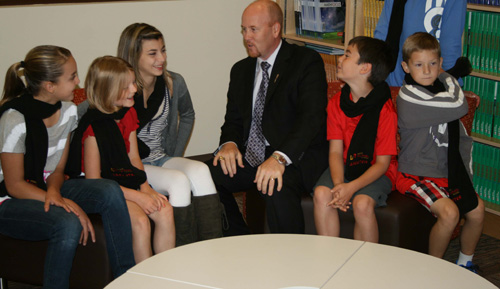
تعلیم, انوویشن, انفراسٹرکچر — whichever way you line up the words, they all lead back to education. Because once a nation has goals for where it wants to be in 5 یا 10 یا 20 سال, that nation is going to need to have a competent, competitive workforce to realize its goals.
Developing the nation’s plan means collaboration. And the collaboration part is perhaps the toughest because people tend to argue about significant matters and you will never find enough educators who will agree on the biggest issues — or will you? دلچسپ بات یہ ہے, my five interviews over the past 5 weeks in The Education Debate 2012 series with Howard Gardner, رچرڈ ریلی, ڈیانے Ravitch, Andy Hargreaves and Linda Darling Hammond often sound similar because there are many commonalities among the solutions proposed for how to improve student achievement in an educational system.
Today I want to focus on a forward thinking education initiative in Alberta, Canada called “Inspiring Education.” I recently had the opportunity to discuss it with the Honourable Jeff Johnson, البرٹا کے وزیر تعلیم. Johnson’s appointment as Minister of Education in May of this year built on his experience as co-chair of the pioneering “متاثر کن کی تعلیم” committee. He was previously Minister of Infrastructure, Minister responsible for the Oil Sands Secretariat, and Parliamentary Assistant to the Treasury Board. جیف بھی ایک فیوچر ٹریڈنگ منزل گڑھے باس کے طور پر مالیاتی منڈیوں میں اور کامیاب چھوٹے کاروباری اداروں کی ایک سیریز کی تعمیر میں کام کرنے کا تجربہ ہے.
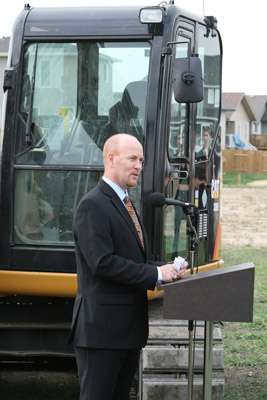
Can you talk about the Albertan “متاثر کن کی تعلیم” پہل – your goals and objectives?
The Education Minister of the day brought together a steering committee of about 20 لوگ, which I chaired, and tasked us with asking Albertans from all walks of life one main question: What kinds of skills and attributes should an educated Albertan graduating in 2030 have? What we heard was that Albertans felt students needed to be three things: engaged thinkers, ethical citizens, and they needed to have an entrepreneurial spirit.
By engaged thinker, we are talking about skills like being able to think critically, being creative, having digital literacy and being cooperative. It also extends beyond our K-12 system, and includes being a true life-long learner.
In terms of the ethical citizen, we want to make sure kids are contributing to their communities. The character traits we require for an ethical citizen would be young people who are empathetic, have good communication skills and who through teamwork and collaboration contribute fully to the community and to the world.
آخر, Albertans are really proud of our history of being pioneers and entrepreneurs. The people who immigrated to Alberta were not wealthy people. They came to Alberta for opportunity, and it was that history that really influenced us to include entrepreneurial spirit as the third element of what we call our three E’s. We wanted our kids to learn to take risks, to be resilient, مسابقتی, resourceful, confident and self-reliant. We wanted to prepare kids for the global economy, for the ever-changing digital age. We wanted to make sure they are ready for the jobs that will be waiting for them, in many cases jobs that don’t even exist yet. And that they are skilled enough so that if the job doesn’t exist, they can create it.
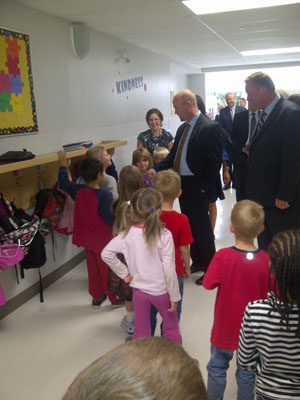
What system changes did these goals require you to make?
سب سے پہلے, we had to build a system that was more centered on the student. Albertans felt the educational system was too caught up in the old ways – based on the desires of trustees, teachers or politicians instead of on what is best for the students and the students’ سیکھنے.
The second major change we felt we should make was to move to a system that was based on competency versus regurgitating content. Every student learns at an individual pace, but our educational system was not set up to deal with that. So the challenge was to move to a system that was based on mastering competency, not just serving a set amount of time in a desk and memorizing facts for a test. When kids can move faster we need to make sure we’re able to challenge them.
The other problem we faced was that our curriculum in Alberta was very standardized and allowed very little flexibility for educators. Much of the content in the curriculum is going to be obsolete in 15 سال اب سے. We want to move to a system where numeracy and literacy remained at the core of learning, but where educators are teaching in a way that will instill our three E’s in kids.
Are your teachers equipped to handle this shift in orientation?
The need for additional training varies teacher by teacher. I think a lot of the newer teachers coming into the system are ready and willing to embrace this new approach. Some will need professional development, and that is a good thing. It isn’t our intention to turn the system on its head and start a revolution – it is more of an “informed transformation”. We have a good system now, one of the best in the world in fact, so we want to move forward without throwing out the good that we’ve already got.
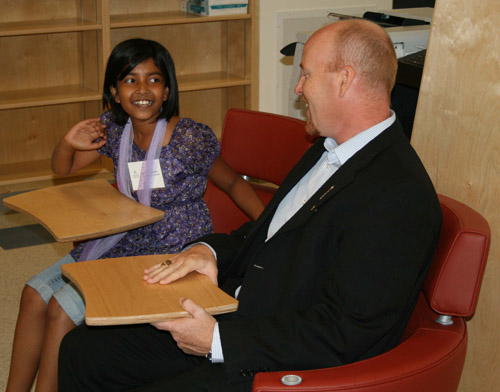
In terms of student assessment do you foresee any changes in your testing practices to accommodate this new orientation?
Curriculum and assessment are obviously inter-related, and both will have to evolve. We currently use standardized tests at four points in a student’s life. We do standardized testing at grades 3, 6 اور 9. Then we have the Diploma Exams in Grade 12, which are essentially our entrance exams for post-secondary. Our plan is to focus on the lower grades first and introduce new tools to assess, بالآخر دوسرے گریڈ کے لئے آگے بڑھ.
کلاس کے سائز اور خصوصی تعلیمی ضروریات کے بارے میں کیا?
Albertans تمام بچوں کو خاص ہیں جو واضح طور پر ہمیں بتایا, اور ہم ان سب کی حمایت اس بات کو یقینی بنانے کی ضرورت ہے. So we are striving for a system that recognizes the differences in students and is able to challenge every child. It’s going to be different for every child, whether it’s learning difficulties, language barriers or gifted children – or anything else. In Alberta we want inclusiveness for the special needs kids and for the gifted kids. We’re in the process of changing our funding to reflect this too.
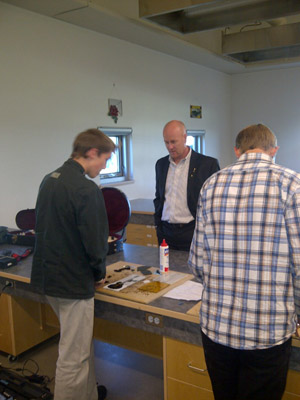
How do you see blended-learning systems and other technology evolving in your school system by 2030?
Technology presents one of the biggest challenges and also one of the biggest areas of opportunity. With the finances that governments and public school systems have, it is impossible to keep the latest greatest technology in the classroom. The technology is just becoming outdated too fast. One of the things we seek to do in our system is ensure that the technology that kids use at home every day becomes part of their learning experience. We’ve got a lot of ‘bring your own device to school’ in terms of kids using their devices as part of their learning. At the core of it, this is not about using technology as a teaching tool, but more about using it as a tool to create knowledge.
What did Albertans tell you about teaching ethics in the classroom, یعنی. to tie in with your ethical citizen goal?
There are a couple of points here. Albertans told us they did not want the government or teachers to have to become the parent. Ethics has got to initially come from the home and the family, and it’s different for every family. What we want to instill as part of building ethical citizens are things like honesty and respect. It means that in our schools you’re going to be honest. You’re going to work hard. You’re going to value diversity and respect other people’s differences. The expectation is that the school system will teach these things because they represent what is important as a citizen.
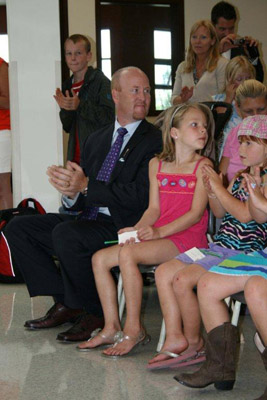
What roles will the arts play in your education system reforms?
You cannot give students 21st century skills such as critical and creative thinking without the arts. If we want kids to be able to think outside the box, if we want kids to be able to innovate, we need to expose them to art and artists.
Exposure to the arts fulfills several needs. It obviously helps ensure we maintain our culture and create new artists. But it doesn’t end there. People who have honed their artistic skills are more observant, and are better able to find problems and find creative solutions. So incorporating the arts is also about making sure we have future business people, سائنسدانوں, doctors and engineers too.
What are your views on higher education choices? Do all students need to go on to a liberal arts education? What about vocational colleges?
Post-secondary is about more than just university. Our post-secondary system in Alberta includes lots of choices for young people, including great universities, colleges and technical institutes. تمام اچھے اختیارات ہیں, اور ہمیں یقین ہے کہ بچوں کو ان سب میں قیمت دیکھ بنانے کی ضرورت ہے.
سب کے بعد, ہم جانتے ہیں کہ صرف کے بارے میں 17 روایتی یونیورسٹی جانے گریجویشن ہمارے بچوں کا فیصد. کہ تربیت بہت اچھی طرح سے ادا کرنے کے لئے رسائی فراہم کرتا ہے کیونکہ باقی کے بہت سے کالجوں اور تکنیکی اداروں تعاقب کر رہے ہیں, انتہائی مسرت بخش پیشوں.
Not every kid needs or wants a liberal arts degree. There are incredible occupations and success to be had in other channels, اور میں ہم نے پہلے مختلف اختیارات کی پیشکش میں بہتر ہو کرنے کی ضرورت ہے.
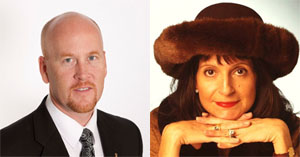
Photos courtesy of Alberta Education.
تعلیم کے لئے عالمی تلاش میں, سر مائیکل باربر سمیت میرے ساتھ اور عالمی سطح پر معروف فکری رہنماؤں (برطانیہ), ڈاکٹر. مائیکل بلاک (امریکہ), ڈاکٹر. لیون Botstein (امریکہ), پروفیسر مٹی Christensen کے (امریکہ), ڈاکٹر. لنڈا ڈارلنگ-ہیمنڈ (امریکہ), ڈاکٹر. مادھو چوہان (بھارت), پروفیسر مائیکل Fullan (کینیڈا), پروفیسر ہاورڈ گارڈنر (امریکہ), پروفیسر اینڈی Hargreaves نے (امریکہ), پروفیسر کریں Yvonne ہلمین (نیدرلینڈ), پروفیسر کرسٹن Helstad (ناروے), جین Hendrickson نے (امریکہ), پروفیسر گلاب Hipkins (نیوزی لینڈ), پروفیسر Cornelia Hoogland (کینیڈا), مسز. چینٹل کوفمین (بیلجیم), ڈاکٹر. Eija Kauppinen (فن لینڈ), سٹیٹ سیکرٹری Tapio Kosunen (فن لینڈ), پروفیسر ڈومینک Lafontaine (بیلجیم), پروفیسر ہیو Lauder (برطانیہ), پروفیسر بین لیون (کینیڈا), رب کین میکڈونلڈ (برطانیہ), پروفیسر بیری McGaw (آسٹریلیا), شیو ندار (بھارت), پروفیسر R. نٹراجن (بھارت), ڈاکٹر. PAK NG (سنگاپور), ڈاکٹر. ڈینس پوپ (امریکہ), شریدر رازگوپالن (بھارت), ڈاکٹر. ڈیانے Ravitch (امریکہ), رچرڈ ولسن ریلی (امریکہ), سر کین رابنسن (برطانیہ), پروفیسر Pasi Sahlberg (فن لینڈ), Andreas کی Schleicher (پیسا, او ای سی ڈی), ڈاکٹر. انتھونی Seldon نے (برطانیہ), ڈاکٹر. ڈیوڈ Shaffer کے (امریکہ), ڈاکٹر. کرسٹن عمیق کر رہے ہیں (ناروے), چانسلر اسٹیفن Spahn (امریکہ), ایوز Theze (اسکول Français کی امریکہ), پروفیسر چارلس Ungerleider (کینیڈا), پروفیسر ٹونی ویگنر (امریکہ), سر ڈیوڈ واٹسن (برطانیہ), پروفیسر Dylan کے Wiliam (برطانیہ), ڈاکٹر. مارک Wormald (برطانیہ), پروفیسر تیو Wubbels (نیدرلینڈ), پروفیسر مائیکل نوجوان (برطانیہ), اور پروفیسر Minxuan جانگ (چین) وہ تمام اقوام کو آج سامنا ہے کہ بڑی تصویر تعلیم سوالات دریافت کے طور پر. تعلیم کمیونٹی پیج کے لئے گلوبل تلاش
C. M. روبن وہ ایک موصول ہوئی ہے جس کے لئے دو بڑے پیمانے پر پڑھا سیریز کے مصنف ہے 2011 میں Upton سنکلیئر ایوارڈ, “تعلیم کے لئے گلوبل تلاش” اور “کس طرح پڑھیں گے?” انہوں نے تین bestselling کتابوں کے مصنف ہیں, سمیت Wonderland میں یلس اصلی.
C پر عمل کریں. M. ٹویٹر پر روبن: www.twitter.com/@cmrubinworld


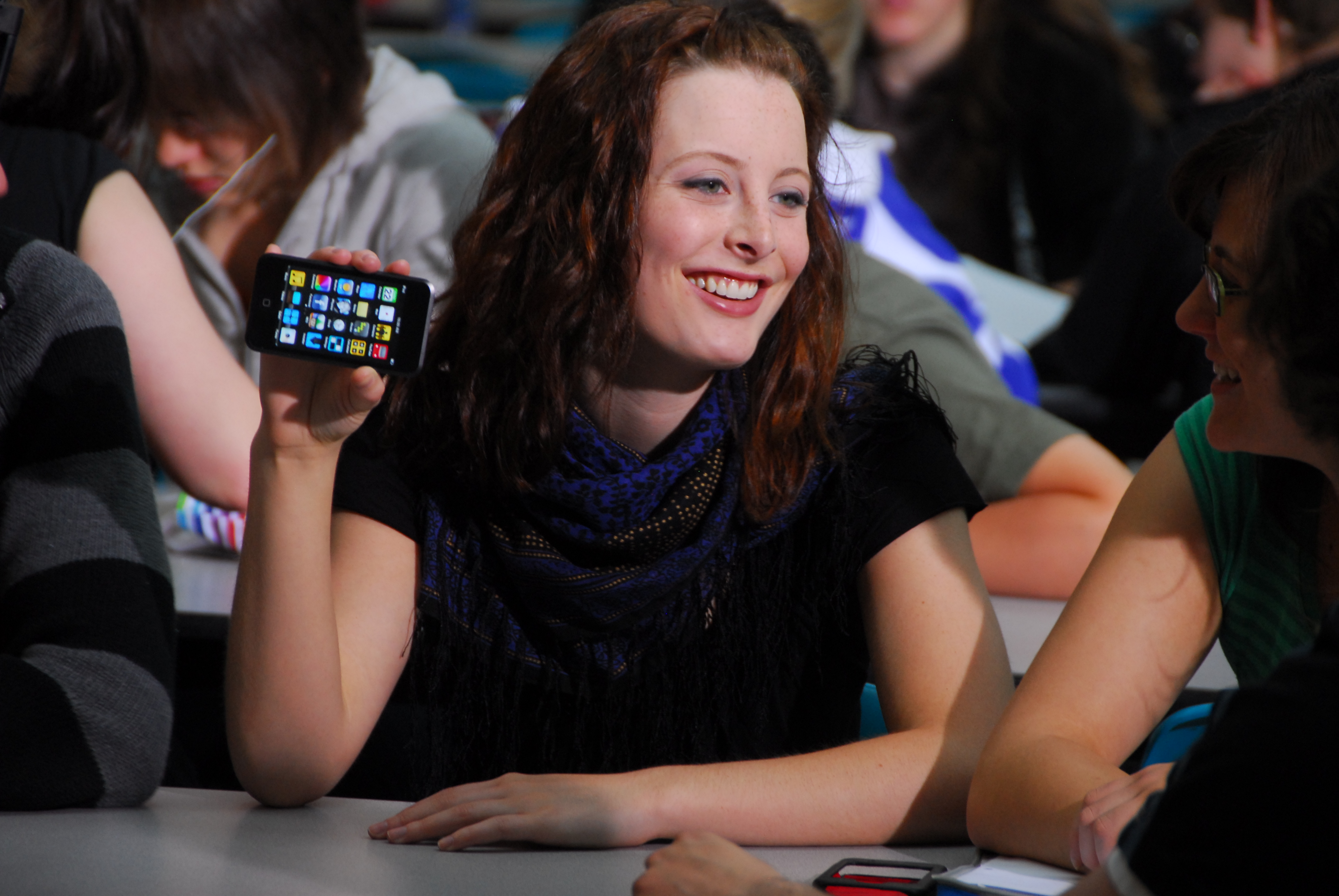
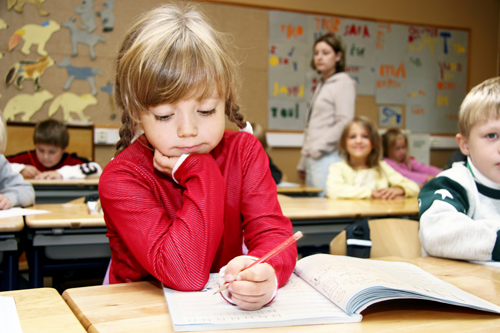
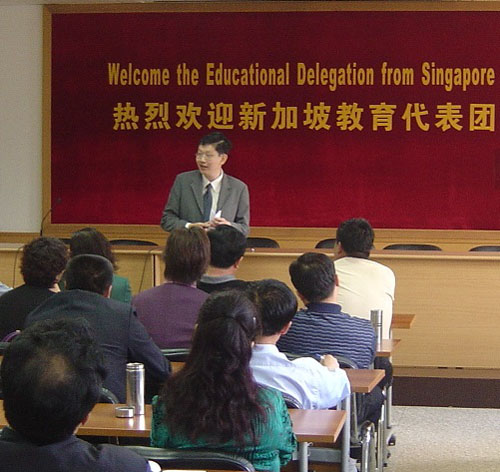
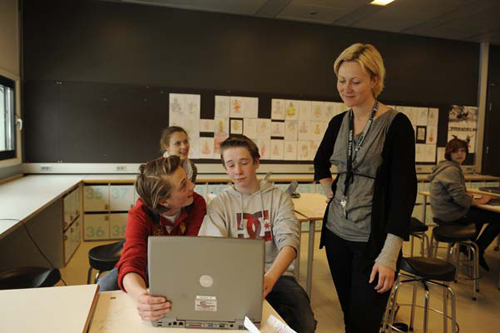
حالیہ تبصرے